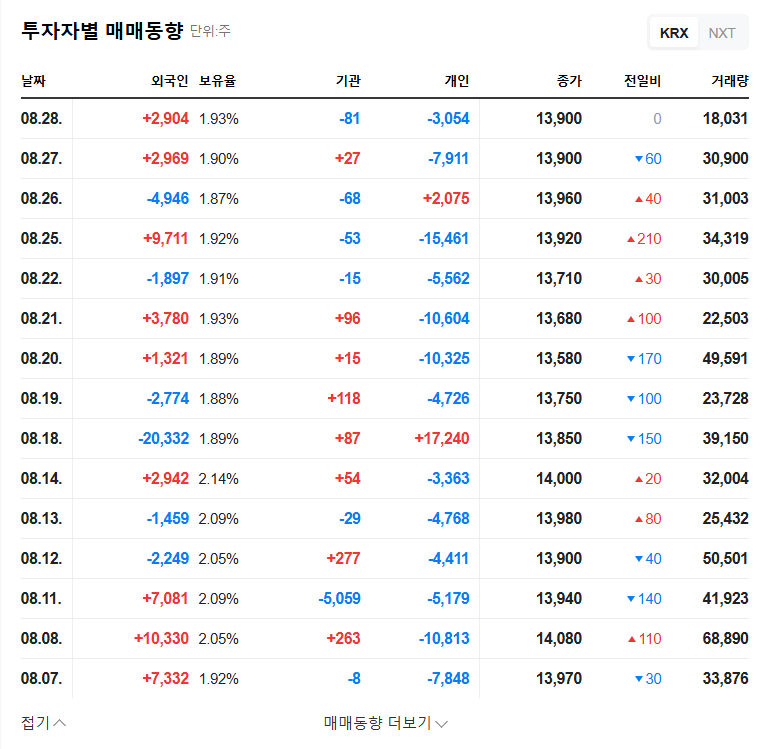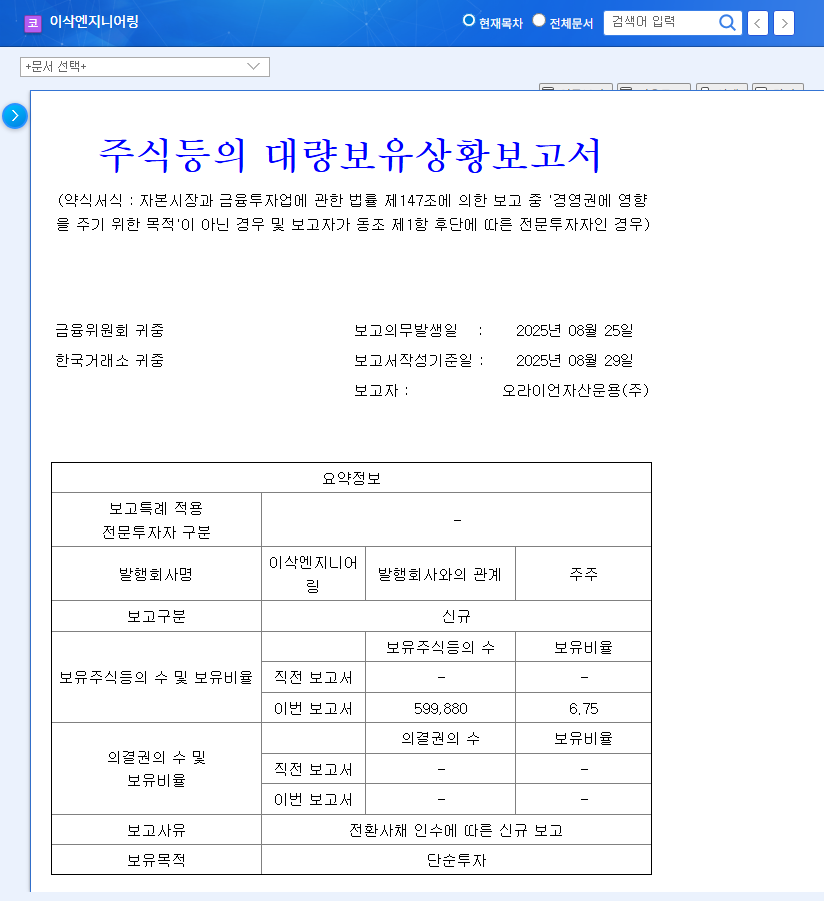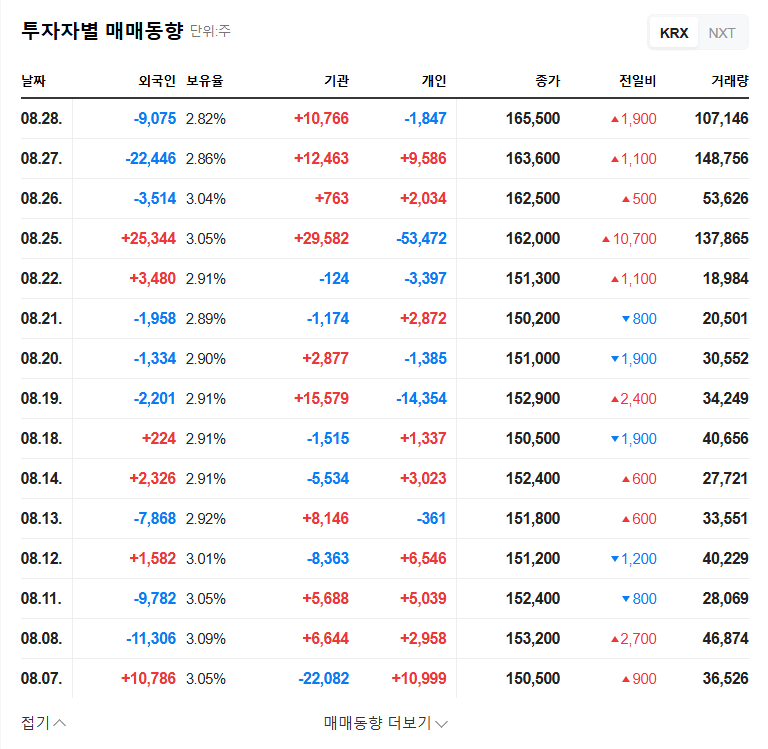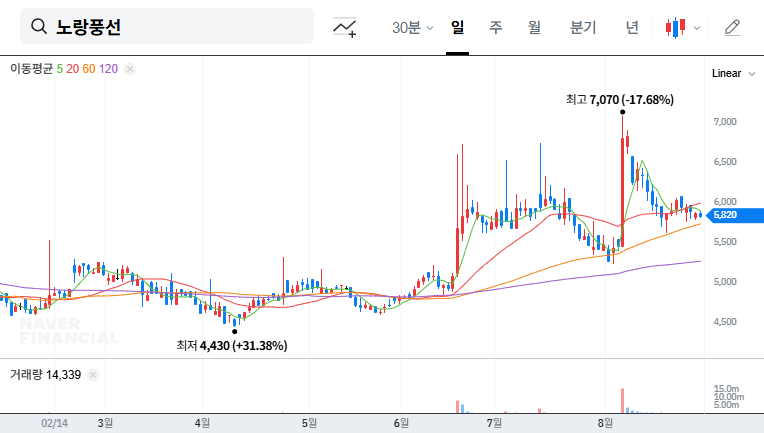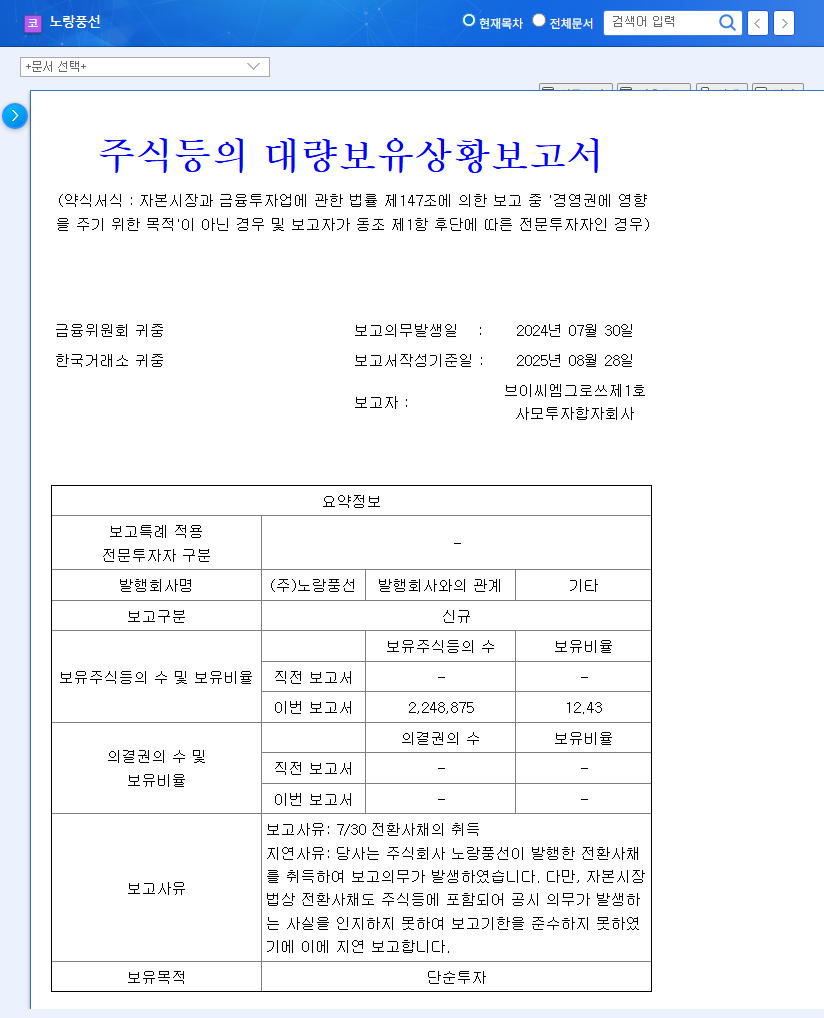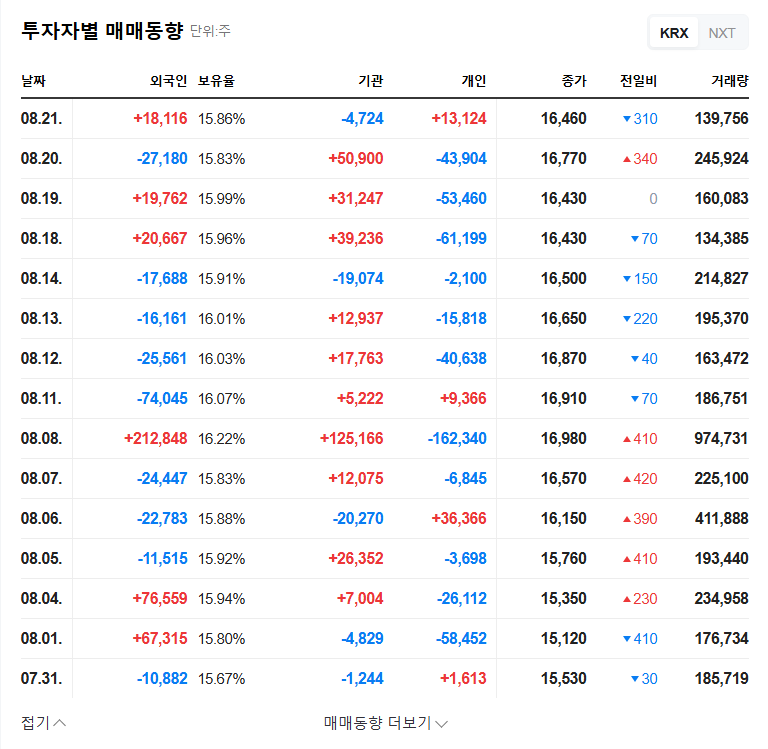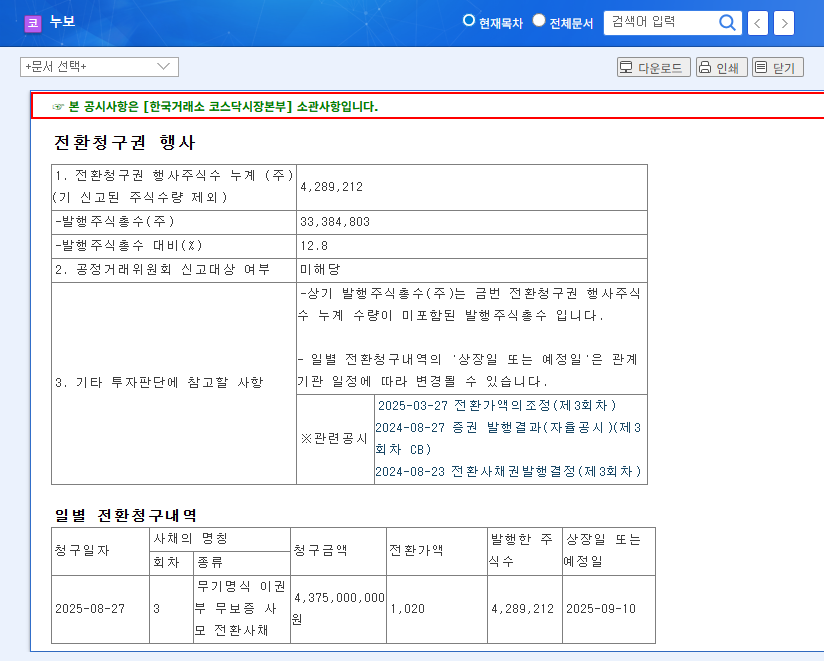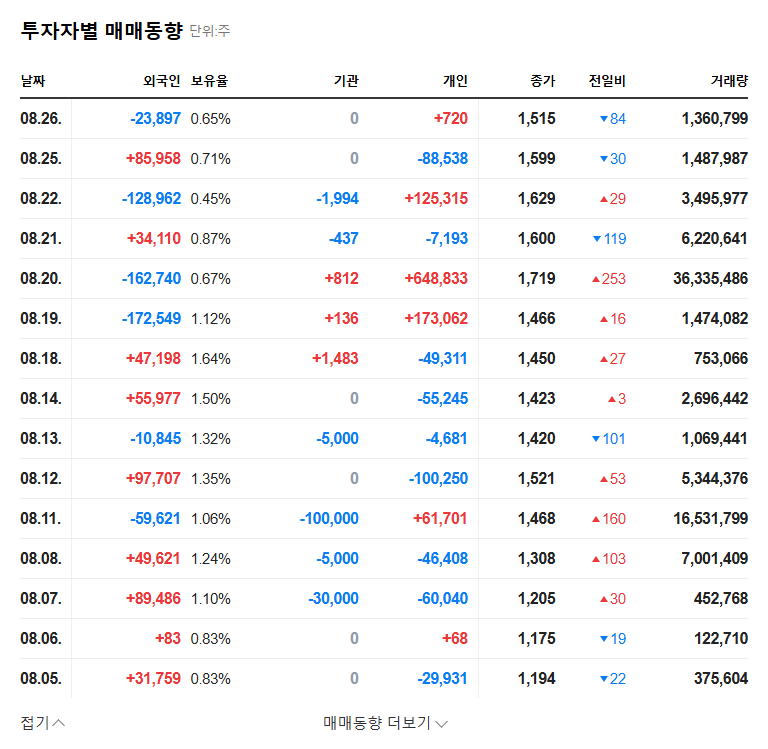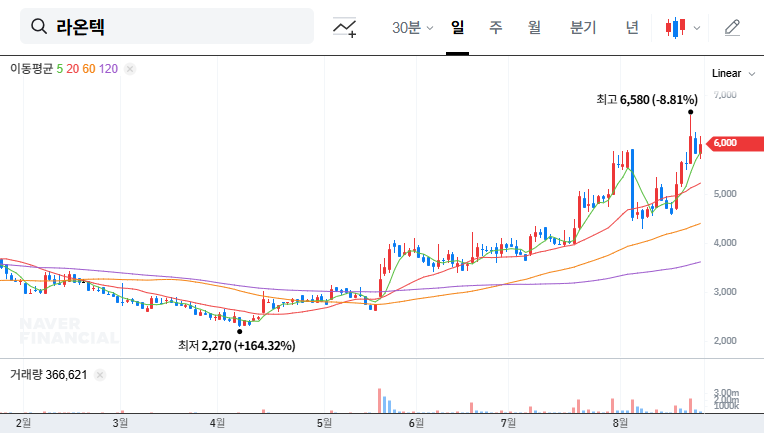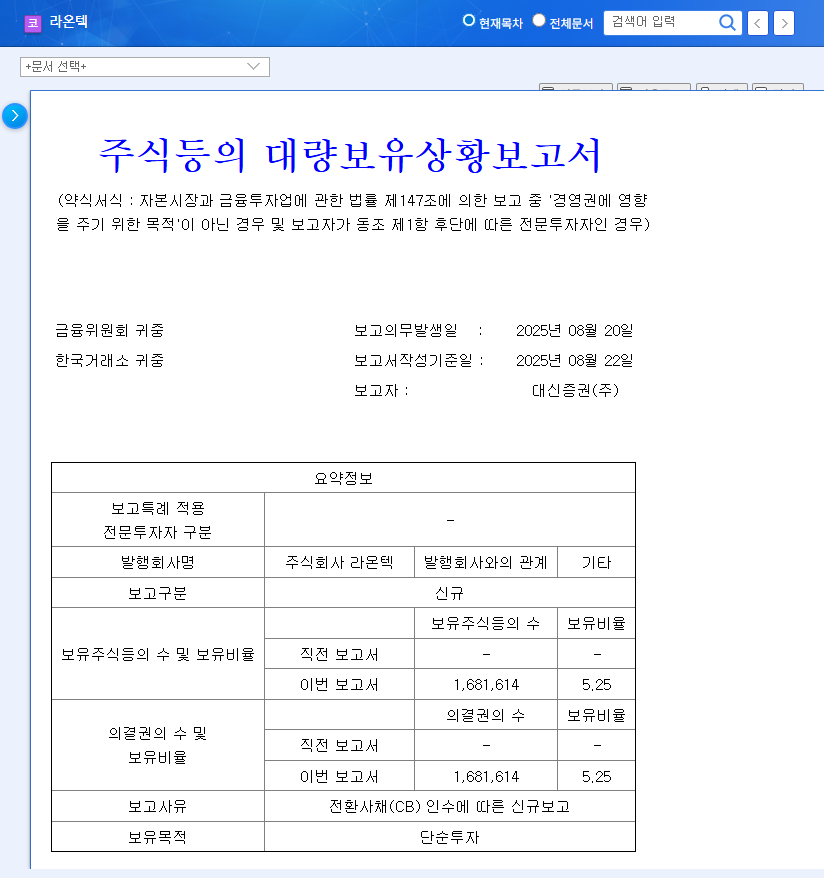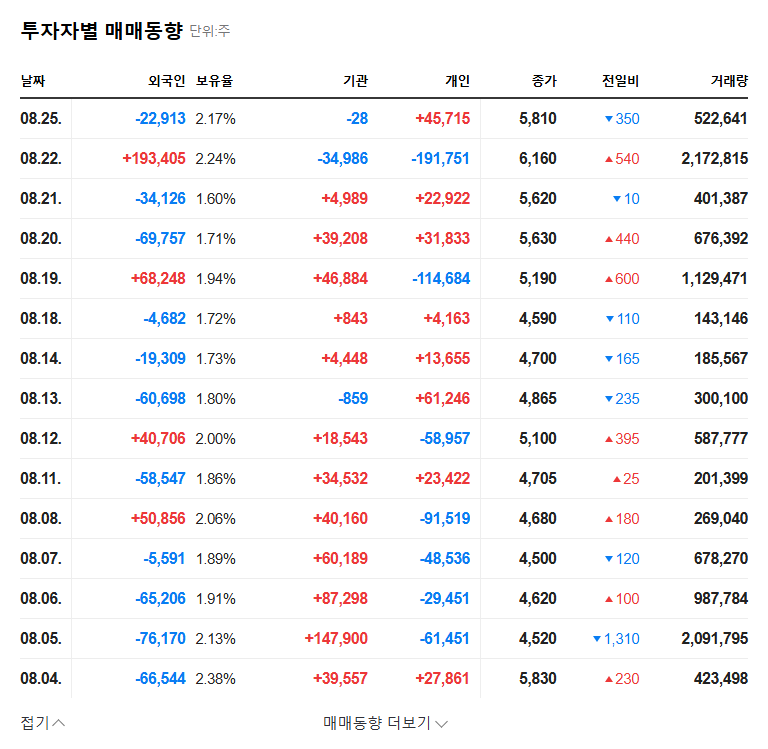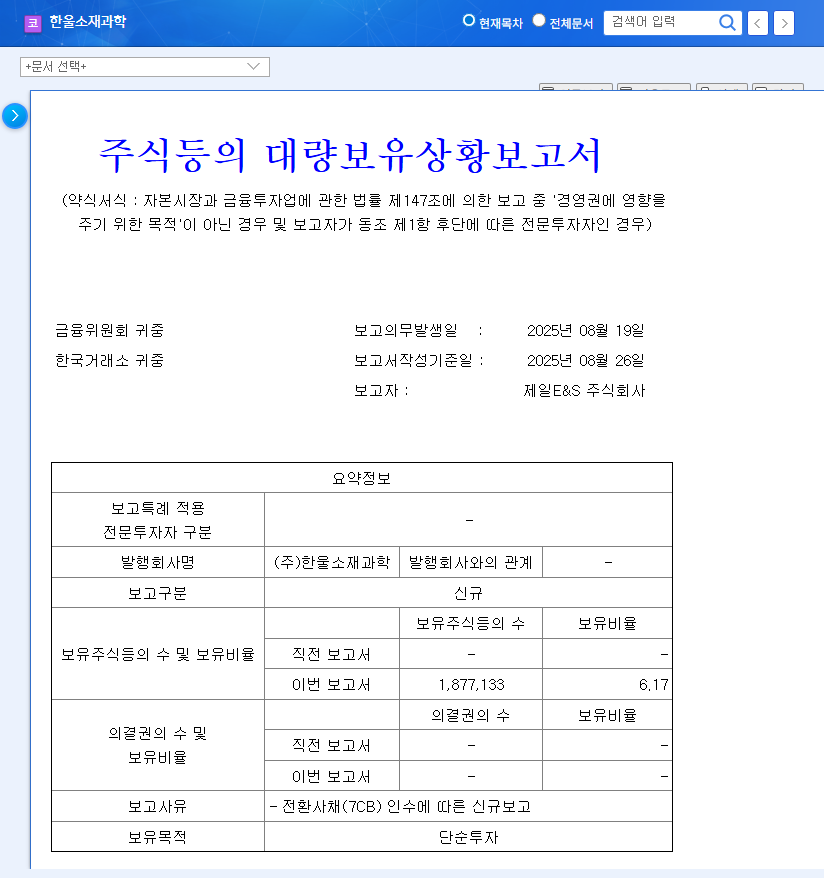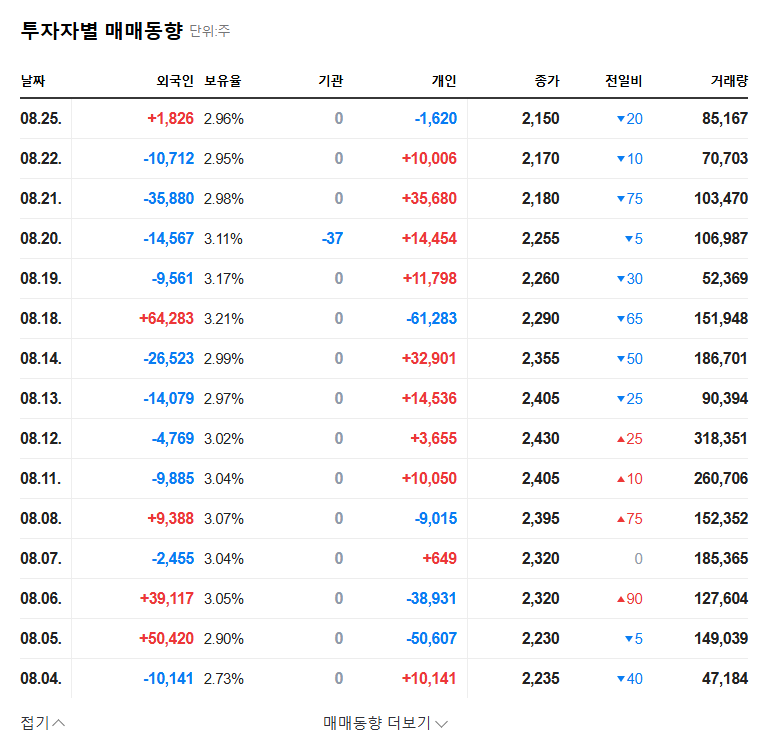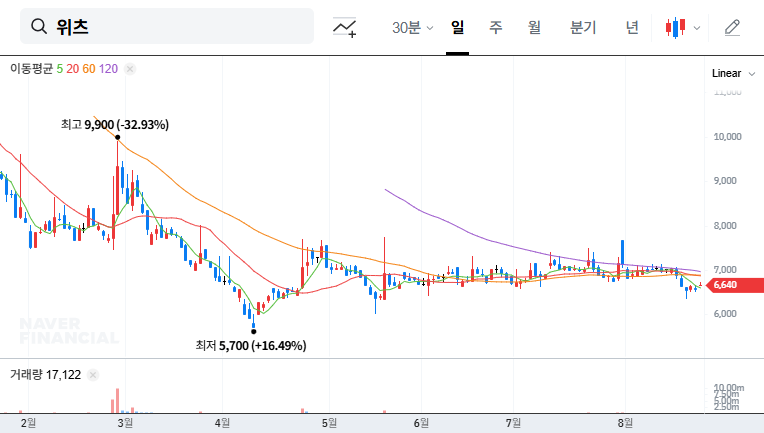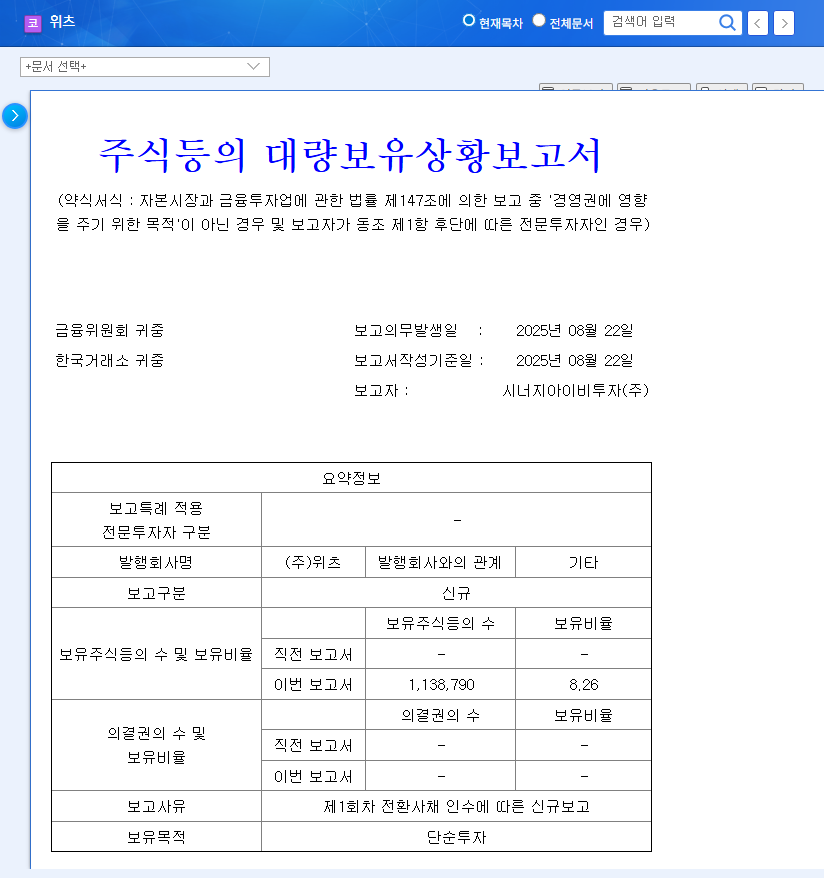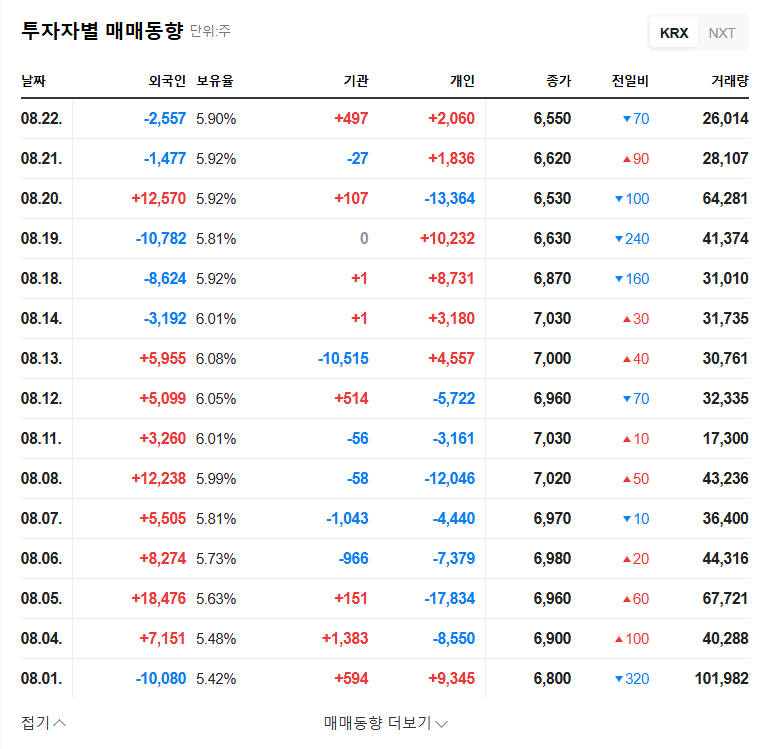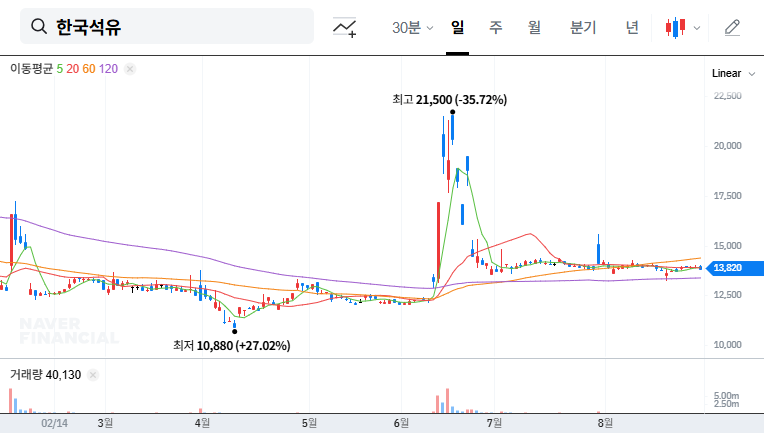
1. What Happened with the CB Issuance?
Korea Petroleum issued ₩20 billion in convertible bonds through a private placement. The conversion price is set at ₩15,409, roughly double the current stock price, and the conversion period is from September 8, 2026, to August 8, 2030. Both the coupon rate and maturity rate are 0%.
2. Why Did Korea Petroleum Issue CBs?
Korea Petroleum aims to secure funds for new business investments (railway track systems, eco-friendly recycling, etc.) and R&D through this CB issuance. This is interpreted as a strategy to secure long-term growth engines and diversify its business portfolio. Building upon the stable profits of the asphalt business, the company seems determined to secure future growth engines through the growth of synthetic resins, the chemical sector, and new business ventures.
3. How Will the CB Issuance Affect Stock Prices?
- Positive Impacts:
- Securing future growth engines through new business investments
- Expectations of future stock price increases as the conversion price is higher than the current stock price
- Negative Impacts:
- Downward pressure on stock prices due to the release of converted shares if the stock price rises above the conversion price
- Concerns about stock dilution due to the CB issuance
- Potential financial burden due to the obligation to repay the principal at maturity (no interest burden)
External factors such as a global economic slowdown and fluctuations in exchange rates and interest rates can also affect Korea Petroleum’s stock price. In particular, volatility in raw material prices and shipping costs can directly impact profitability.
4. What Should Investors Do?
In the short term, investors should focus on the market’s reaction and evaluation of the company’s growth potential rather than the CB issuance itself. In the medium to long term, the investment performance of the secured funds will determine the direction of the stock price. Considering the significant gap between the conversion price and the current stock price, it is crucial whether Korea Petroleum can demonstrate growth momentum that meets market expectations. Before making investment decisions, it is essential to further analyze the specific use plan for the CB funds, recent business performance, and information on CB investors.
Frequently Asked Questions
What are convertible bonds (CBs)?
Convertible bonds (CBs) are bonds that can be converted into shares of stock, while also offering the typical bond features of principal and interest repayment.
Why does a CB issuance affect stock prices?
When CBs are converted into shares, the number of outstanding shares increases, which can dilute the value of existing shares. Conversely, if a company secures growth funds through a CB issuance, it can be a factor in stock price increases.
Is it a good idea to invest in Korea Petroleum’s CBs?
Investment decisions should always be made at your own discretion. This article is not investment advice, and you should make a careful decision based on sufficient information before making any investment.

